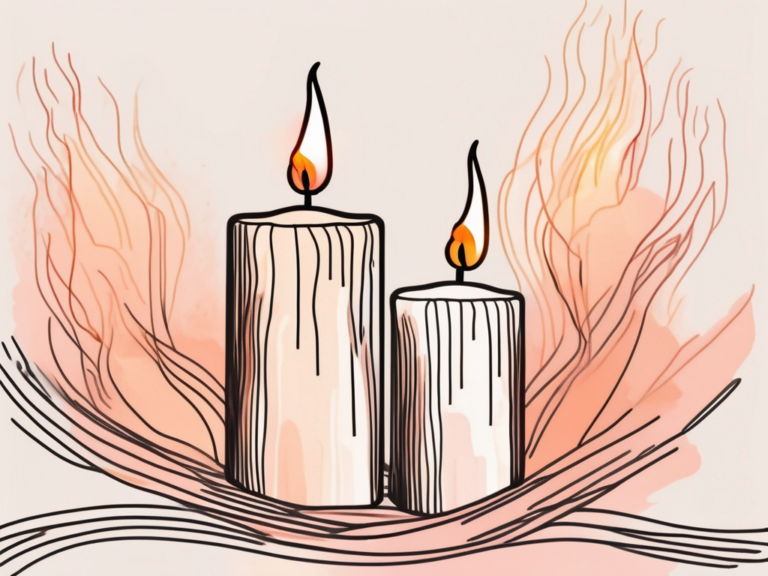Overcoming Fear: Scared to Go to Confession? Here’s How to Find Courage
Confession is a deeply personal and transformative experience that allows individuals to seek forgiveness and strengthen their spiritual journey. Yet, many people find themselves gripped by fear when contemplating going to confession. The fear of judgment, embarrassment, or facing one’s own shortcomings can be overwhelming. If you’re feeling scared to go to confession, it’s important to understand that you’re not alone. In this article, we will explore the psychology behind the fear of confession, discuss the role of confession in spiritual growth, and provide practical strategies to help you overcome your fears and embrace the courage necessary for a fearless confession.
Understanding the Fear of Confession
Confession, despite its immense value, can evoke a range of emotions within individuals. One common psychological factor behind this fear is the fear of judgment. We crave acceptance and fear rejection, making the prospect of confessing our wrongdoings to another person incredibly daunting. Additionally, religious anxiety can also play a significant role in intensifying these fears. The fear of divine punishment or disappointment can leave individuals hesitant to fully engage in the confession process.
The Psychology Behind Fear
Fear is a complex emotional response that can stem from various sources. It is often rooted in our natural instinct for self-preservation. When it comes to confession, fear can manifest as a protective mechanism to avoid vulnerability or the potential consequences of our actions. Understanding that fear is a normal response can help us approach it with compassion and develop strategies to overcome it.
Religious Anxiety and Confession
Religious anxiety can arise due to a multitude of reasons, including a strict upbringing, a fear of divine retribution, or a lack of understanding about the essence of confession. The pressure to be perfect or the fear of disappointing a higher power can create immense anxiety surrounding the confession process. Recognizing this anxiety and exploring it with open-mindedness can pave the way for a more enriching experience.
Moreover, it is important to acknowledge that the fear of confession is not limited to religious contexts. In non-religious settings, individuals may still experience anxiety and apprehension when it comes to confessing their wrongdoings. This fear can stem from societal expectations, fear of judgment from peers or authority figures, or a concern about the impact of their confession on their personal and professional relationships.
Furthermore, the fear of confession can be influenced by past experiences. If an individual has previously faced negative consequences or harsh judgment after confessing, they may develop a deep-seated fear of repeating those experiences. This fear can be particularly challenging to overcome, as it is rooted in personal trauma and can significantly impact an individual’s willingness to open up and seek forgiveness.
The Role of Confession in Spiritual Growth
Confession is not just a means of seeking forgiveness; it is an integral part of our spiritual growth. Recognizing the importance of confession can help us reframe our perspective and find the motivation to face our fears head-on.
The Importance of Confession
Confession offers a profound opportunity for healing and growth. By acknowledging our mistakes and imperfections, we open ourselves up to receiving divine grace and mercy. Confession allows us to let go of the burdens of guilt and shame, paving the way for inner peace and spiritual renewal.
The Healing Power of Confession
Confession is a powerful tool for emotional and spiritual healing. By confessing our wrongdoings, we release the weight of our mistakes and grant ourselves the permission to heal. Through confession, we can find solace in knowing that we are not defined by our past actions and that we have the capacity to learn, grow, and become better versions of ourselves.
Furthermore, confession provides us with an opportunity to deepen our connection with others. When we confess our wrongdoings to someone we trust, we invite them into our vulnerability and allow them to offer support and guidance. This act of sharing our struggles can foster a sense of community and strengthen our relationships, creating a network of support that can aid us in our journey towards spiritual growth.
In addition, confession helps us cultivate self-awareness and introspection. By examining our actions and behaviors, we gain insight into our patterns and tendencies. This self-reflection allows us to identify areas in our lives where we may need to make changes or seek further growth. Through the process of confession, we develop a greater understanding of ourselves and our spiritual journey, enabling us to make more informed choices and align our actions with our values.
Strategies to Overcome Fear of Confession
While the fear of confession is valid, it is essential not to let it hinder our spiritual growth. Here are some strategies to help you navigate and overcome your fears:
Preparing Yourself for Confession
Preparation is key to calming the mind and alleviating anxiety. Take the time to reflect on your actions, seeking forgiveness from both God and yourself. Journaling your thoughts, praying, or speaking with a trusted spiritual advisor can provide clarity and peace before entering the confessional.
When preparing for confession, it can be helpful to create a quiet and sacred space where you can fully engage in self-reflection. Light a candle, play soft instrumental music, or surround yourself with objects that bring you a sense of peace and tranquility. This intentional environment can help you focus your thoughts and emotions, allowing for a more meaningful and transformative confession experience.
Seeking Guidance and Support
Never underestimate the power of seeking guidance and support. Reach out to a trusted priest or spiritual mentor who can offer guidance, understanding, and reassurance. Talking through your fears and concerns with someone who understands the importance of confession can ease your anxieties and provide a safe space for self-reflection and growth.
In addition to seeking guidance from a spiritual mentor, consider joining a support group or community that focuses on personal growth and spiritual development. Surrounding yourself with like-minded individuals who have similar fears and experiences can create a sense of belonging and solidarity. Together, you can share your struggles, offer support, and celebrate each other’s progress on the journey towards spiritual healing and renewal.
Embracing Courage: Steps to a Fearless Confession
Embracing courage is a process that requires self-compassion and determination. Here are some steps to help you cultivate the inner strength necessary for a fearless confession:
Cultivating Inner Strength
Developing inner strength begins with self-acceptance and self-love. Embrace your humanity, understanding that everyone makes mistakes. Remind yourself that confession is not about judgment but about seeking forgiveness and growing as an individual.
The Journey to Courageous Confession
Remember that confession is a journey, and it might take time to fully embrace and overcome your fears. Be patient with yourself and celebrate every step you take toward a fearless confession. Recognize that courage is not the absence of fear but the willingness to face it.
As you embark on this journey of courageous confession, it is essential to acknowledge the power of vulnerability. Opening up and sharing your deepest truths requires immense bravery. It is in these moments of vulnerability that true growth and healing can occur. By allowing yourself to be vulnerable, you create space for genuine connection and understanding.
Furthermore, it is crucial to surround yourself with a supportive network of individuals who can provide guidance and encouragement. Seek out friends, family, or mentors who can offer a listening ear and non-judgmental advice. Their presence can serve as a source of strength and reassurance as you navigate the path to fearless confession.
Maintaining Courage for Future Confessions
Once you have overcome your initial fear, it is important to maintain your courage for future confessions. Here are some strategies to help you build resilience against fear:
Building Resilience Against Fear
Remind yourself of the positive benefits of confession and the peace it brings to your soul. Reflect on the growth and healing you have experienced thus far, and use that as motivation to continue on your spiritual journey fearlessly. Surround yourself with a supportive community that understands the significance of confession and encourages your growth.
Continuing Your Spiritual Journey Fearlessly
View every confession as an opportunity for growth and renewal. Embrace the process with an open heart, knowing that by engaging in confession, you are actively working towards becoming the best version of yourself. Approach each confession with faith and trust in God’s infinite love and mercy.
Fear should not hold us back from the transformative power of confession. By understanding the psychology behind our fears, recognizing the importance of confession in our spiritual growth, and implementing practical strategies to overcome our apprehensions, we can find the courage necessary to embark on a fearless confession journey.
It is important to remember that confession is not a one-time event, but rather an ongoing practice that allows us to continually release our burdens and receive divine grace. Each confession is an opportunity to deepen our relationship with God and experience His unconditional love and forgiveness.
As we continue on our spiritual journey fearlessly, we may encounter moments of doubt or uncertainty. During these times, it can be helpful to seek guidance from a spiritual mentor or counselor who can provide support and encouragement. They can help us navigate through any challenges or obstacles that may arise, ensuring that our confession journey remains a source of growth and transformation.
Remember, you are not alone on this path. Embrace the opportunity for healing, growth, and spiritual renewal that confession provides. Step out of the grip of fear and into the limitless embrace of divine love. With each confession, we take another step towards becoming the person we are meant to be.






